
Riohacha: Gateway to the Guajira Peninsula
Riohacha, the capital of La Guajira Department in Colombia, is a vibrant coastal city that offers a unique blend of cultural and natural attractions. Known for its rich indigenous heritage, Riohacha is home to the Wayuu people, whose colorful handicrafts and weaving skills are renowned throughout the country. Visitors can explore local markets filled with intricate mochilas (woven bags) and other traditional crafts, providing a perfect opportunity to take home a piece of Colombian culture. The city's coastal charm is accentuated by its beautiful beaches, such as Playa de Riohacha, where you can relax and enjoy the Caribbean Sea's warm waters. For those seeking adventure, Riohacha serves as the gateway to the stunning La Guajira Peninsula. Here, you can embark on excursions to explore the dramatic landscapes of the Tatacoa Desert and the wind-swept dunes of Cabo de la Vela. Adding to its allure, Riohacha boasts a lively seafront promenade, the Malecon, lined with palm trees and offering spectacular sunset views. The city also has a burgeoning food scene, with numerous seafood restaurants serving up fresh catches of the day. Whether you are interested in cultural immersion, beach relaxation, or desert adventures, Riohacha provides a diverse array of experiences for every traveler.
Local tips in Riohacha
- Visit local Wayuu markets to buy authentic handicrafts and support indigenous artisans.
- Bring plenty of sunscreen and water when exploring the La Guajira Peninsula, as the sun can be intense.
- Hire a local guide for excursions to ensure a safe and informative experience in the desert.
- Try the local seafood dishes, especially the fresh fish and shrimp ceviche.
- Sunset at the Malecon is a must-see for stunning views over the Caribbean Sea.
Riohacha: Gateway to the Guajira Peninsula
Riohacha, the capital of La Guajira Department in Colombia, is a vibrant coastal city that offers a unique blend of cultural and natural attractions. Known for its rich indigenous heritage, Riohacha is home to the Wayuu people, whose colorful handicrafts and weaving skills are renowned throughout the country. Visitors can explore local markets filled with intricate mochilas (woven bags) and other traditional crafts, providing a perfect opportunity to take home a piece of Colombian culture. The city's coastal charm is accentuated by its beautiful beaches, such as Playa de Riohacha, where you can relax and enjoy the Caribbean Sea's warm waters. For those seeking adventure, Riohacha serves as the gateway to the stunning La Guajira Peninsula. Here, you can embark on excursions to explore the dramatic landscapes of the Tatacoa Desert and the wind-swept dunes of Cabo de la Vela. Adding to its allure, Riohacha boasts a lively seafront promenade, the Malecon, lined with palm trees and offering spectacular sunset views. The city also has a burgeoning food scene, with numerous seafood restaurants serving up fresh catches of the day. Whether you are interested in cultural immersion, beach relaxation, or desert adventures, Riohacha provides a diverse array of experiences for every traveler.
When is the best time to go to Riohacha?
Iconic landmarks you can’t miss
Malecón Playa
Explore Malecón Playa in Riohacha, a stunning coastal attraction with vibrant culture, breathtaking views, and a relaxing beach experience.
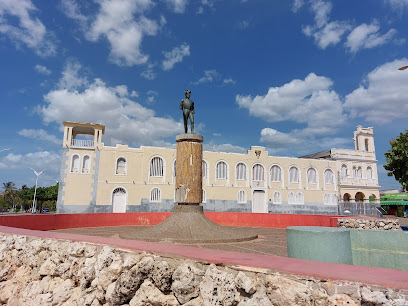
Plaza José Prudencio Padilla
Experience the vibrant atmosphere of Plaza José Prudencio Padilla, a cultural hub in Riohacha, perfect for relaxation, local flavors, and community spirit.
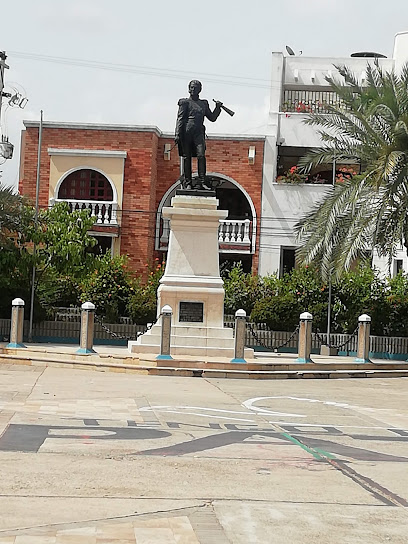
Mayapo beaches
Experience the breathtaking beauty and tranquility of Mayapo Beaches, a hidden gem in La Guajira, Colombia, perfect for relaxation and adventure.
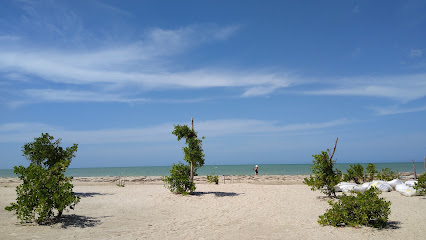
Muelle Turístico
Experience the vibrant culture and stunning coastal views at Muelle Turístico, a must-visit attraction in Riohacha, Colombia.
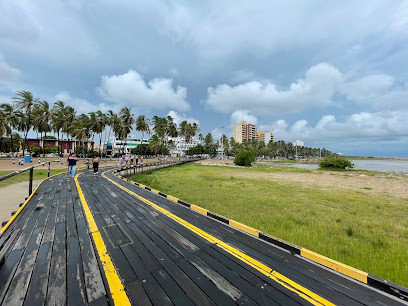
Santuario de Fauna y Flora Los Flamencos
Explore the stunning Santuario de Fauna y Flora Los Flamencos, a must-visit national park in La Guajira, Colombia, known for its vibrant wildlife and breathtaking landscapes.
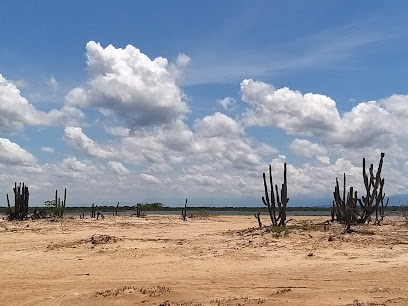
Hotel Taroa
Experience the warmth of La Guajira at Hotel Taroa, where comfort meets culture in the vibrant city of Riohacha.
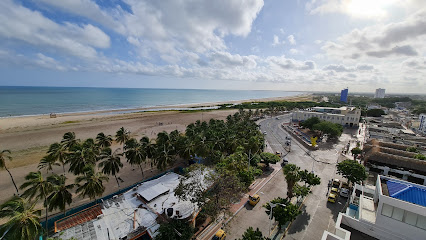
I Love Riohacha.
Explore I Love Riohacha, a historical landmark in La Guajira, rich in culture, stunning views, and vibrant community experiences.
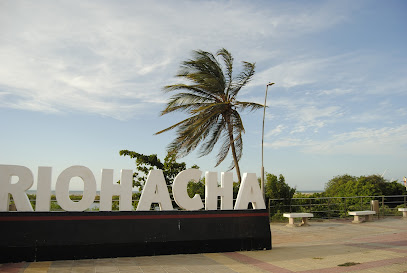
Hotel Gimaura
Experience comfort and culture at Hotel Gimaura, your perfect getaway in Riohacha, La Guajira, where tradition meets tranquility.

Monumento A Francisco El Hombre
Explore the Monument to Francisco El Hombre in Riohacha, a cultural landmark celebrating Colombia's rich heritage and folklore.
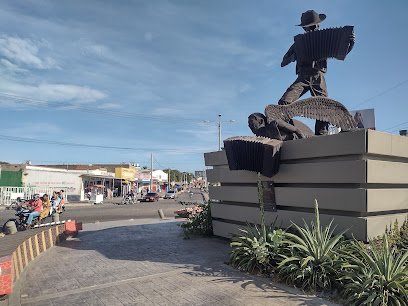
Playas De Ríohacha
Experience the serene beauty and vibrant culture of Playas De Ríohacha, a hidden Caribbean retreat perfect for relaxation and exploration.
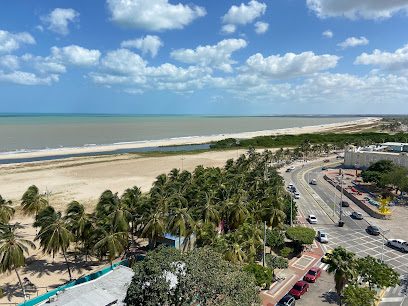
La Jaus by La Trece
Discover the authentic flavors of Colombia at La Jaus by La Trece, a must-visit restaurant in the heart of Riohacha, La Guajira.
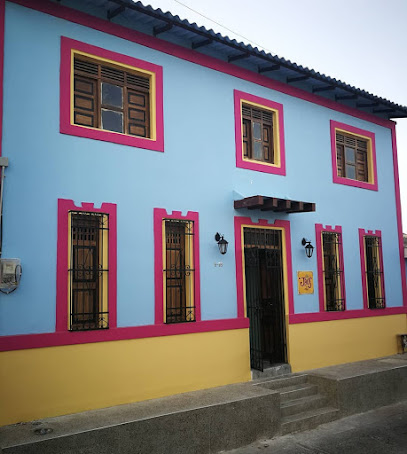
Monumento A Los Embarradores
Explore the Monumento A Los Embarradores in Riohacha, La Guajira, a stunning tribute to the region's fishing heritage amidst beautiful coastal views.
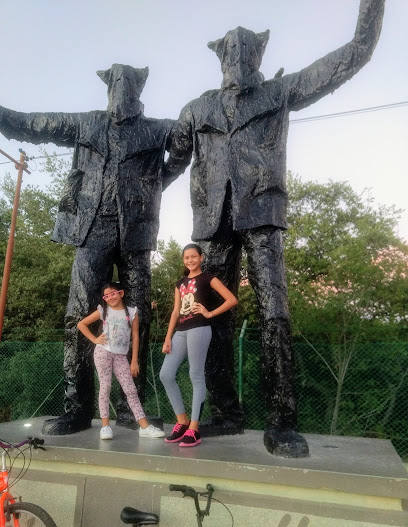
Sumaj Feeling
Discover the rich culture and stunning landscapes of La Guajira with Sumaj Feeling, your premier tour operator in Riohacha, Colombia.
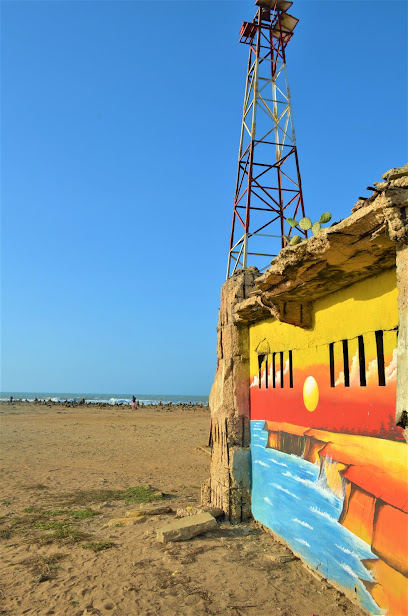
Pichiguel cafe
Experience the rich flavors of La Guajira at Pichiguel Cafe, a cozy eatery offering traditional Colombian dishes and aromatic local coffee.
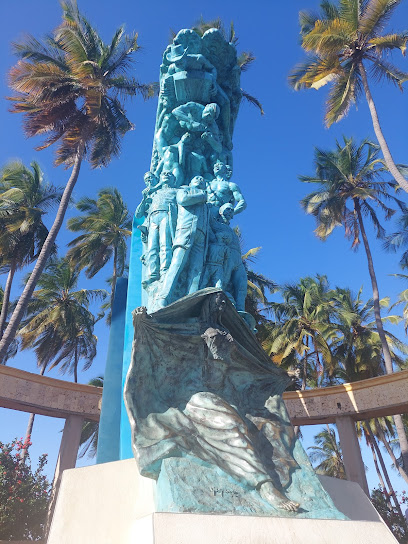
Guajira Tours
Discover the enchanting landscapes and rich traditions of La Guajira, Colombia with Guajira Tours.
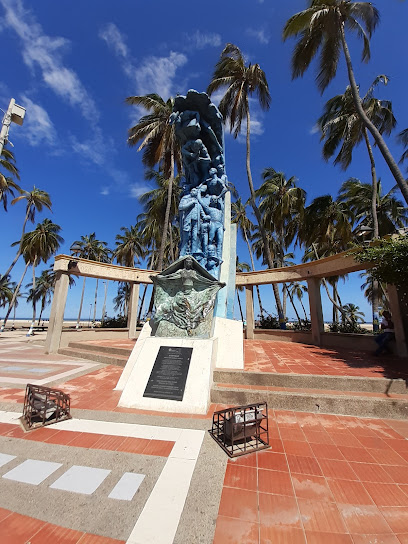
Unmissable attractions to see
Malecón Playa
Experience the vibrant coastal culture of Riohacha at Malecón Playa, a must-visit Caribbean destination.
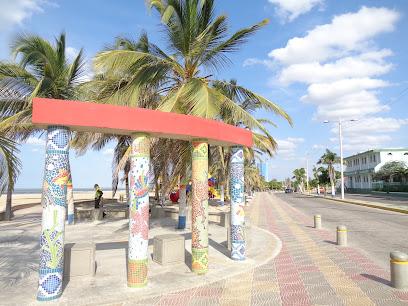
Plaza José Prudencio Padilla
Experience the vibrant heart of Riohacha at Plaza José Prudencio Padilla, a cultural hub with history, local crafts, and lively Colombian spirit.
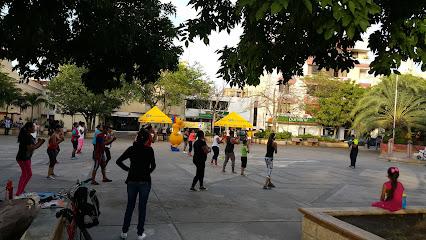
Parque Nicolás de Federman
A green oasis in the heart of Riohacha, perfect for relaxation and recreation.
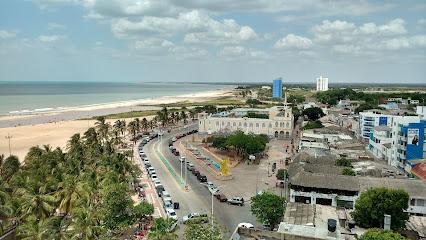
Mayapo beaches
Discover Mayapo beaches: a tranquil escape with white sands, turquoise waters, and rich Wayúu culture in La Guajira, Colombia.
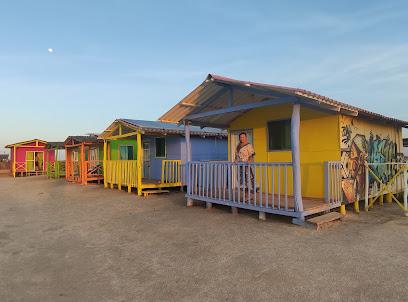
Mayapo beaches
Discover Mayapo beaches: Tranquil Caribbean escape with white sands, turquoise waters, and vibrant Wayuu culture near Riohacha, Colombia.
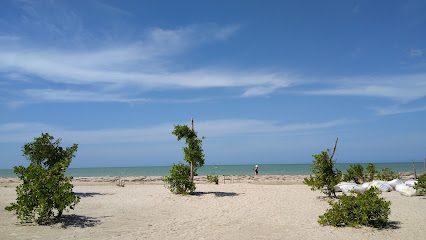
Muelle Turístico
Experience La Guajira's charm at Riohacha's Muelle Turístico: stunning views, local culture, and delicious cuisine await on Colombia's northern coast.
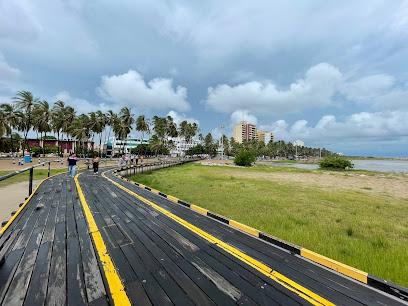
I Love Riohacha.
Capture the spirit of Riohacha at this iconic landmark, a vibrant symbol of local pride and the gateway to La Guajira's cultural heart.
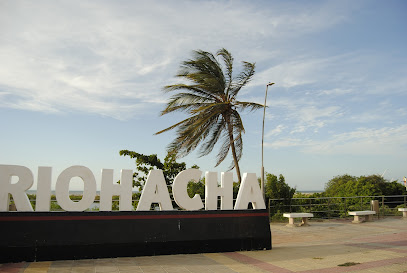
Parque De La Mujer Indígena
A tribute to the resilience and cultural contributions of indigenous women in the heart of Riohacha.
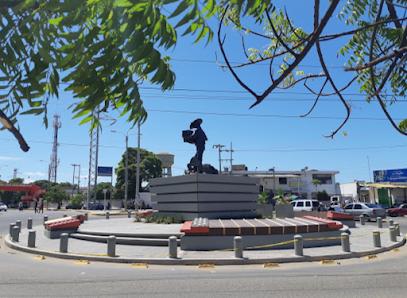
Monumento A Francisco El Hombre
A vibrant monument in Riohacha honoring the legendary Francisco El Hombre and the heart of Colombian vallenato music.
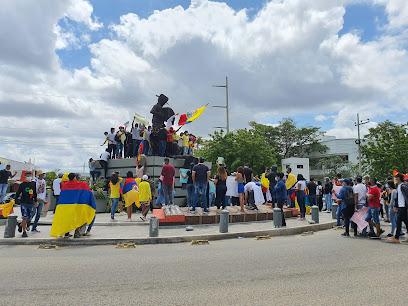
Monumento A Los Embarradores
A tribute to Riohacha's traditional fishermen, the Monumento A Los Embarradores stands as a symbol of local culture and history.
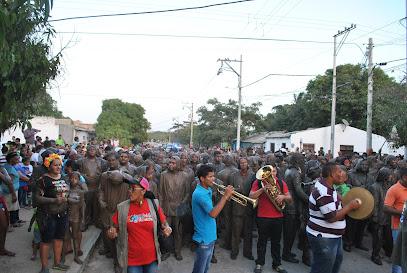
Monumento A Los Embarradores
A striking monument in Riohacha honoring the 'Embarradores' carnival tradition and the city's rich cultural heritage.
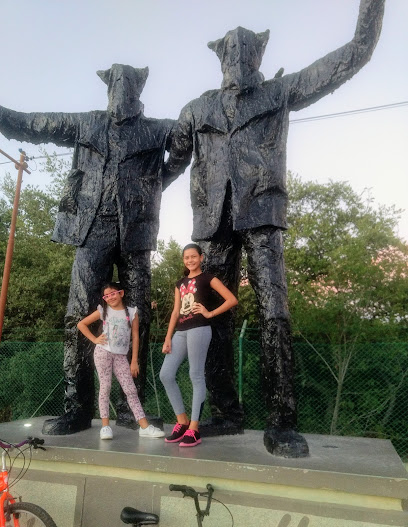
Santuario de flamencos
Discover the vibrant pink flamingos and diverse birdlife in this protected sanctuary near Riohacha, La Guajira.
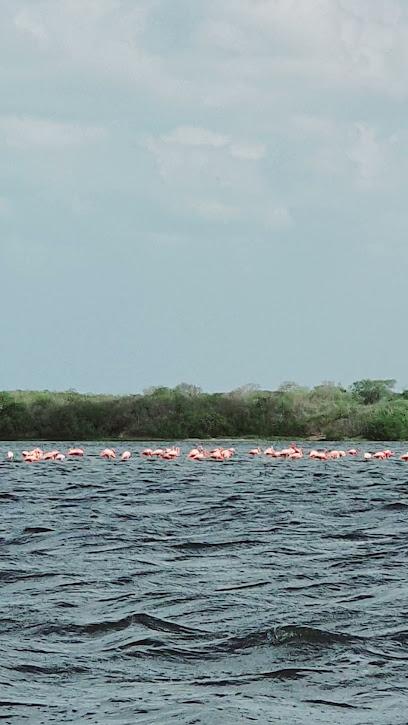
MATAJUNA Park
Escape to Riohacha's MATAJUNA Park: A serene oasis where nature meets culture, offering relaxation and recreation for all travelers.
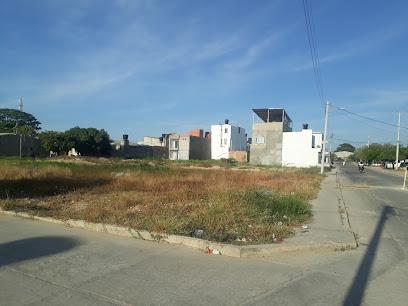
Ecotour Wayuu
Discover vibrant flamingos, diverse birdlife, and rich Wayuu culture in this unique coastal sanctuary near Riohacha, Colombia.
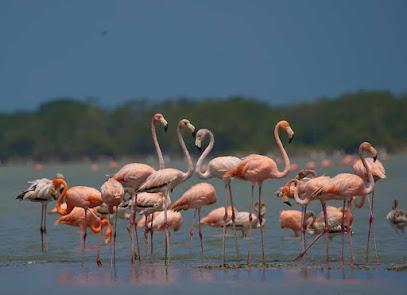
Monumento Genesis del Vallenato
A vibrant monument in Riohacha celebrating the cultural heritage of Colombian Vallenato music, a must-see for music lovers and culture enthusiasts.
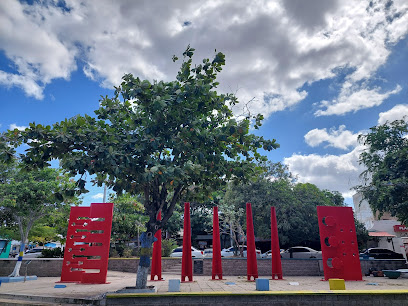
Essential places to dine
La Casa del Marisco
Experience the authentic taste of Caribbean seafood at La Casa del Marisco in Riohacha - where every dish tells a story.
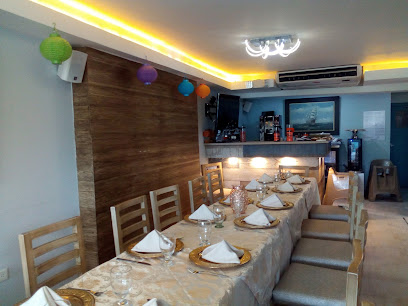
El meson de carmen
Experience authentic Colombian cuisine at El Mesón de Carmen in Riohacha – where local flavors meet warm hospitality.
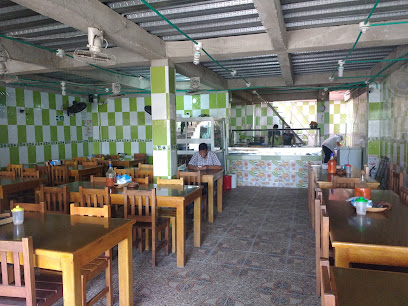
Quile Parrilla
Experience authentic Colombian flavors at Quile Parrilla in Riohacha—where every meal tells a story through taste.
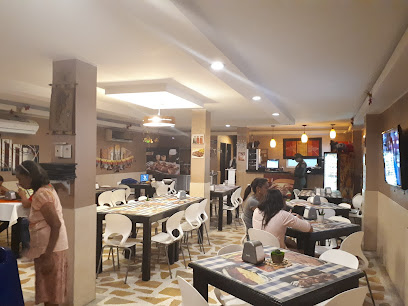
Plaza 11 Food House
Experience vibrant flavors at Plaza 11 Food House in Riohacha - where local cuisine meets international delight!
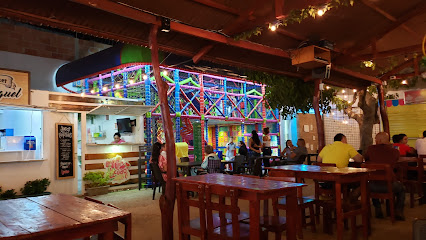
Restaurante Yotojoro
Experience authentic Colombian flavors at Restaurante Yotojoro in Riohacha - a culinary treasure showcasing La Guajira's rich gastronomic heritage.
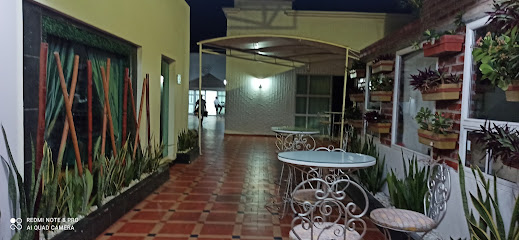
Restaurante El Reposo Merendero
Discover authentic Colombian flavors at Restaurante El Reposo Merendero in Riohacha - a culinary haven offering a unique taste of La Guajira.
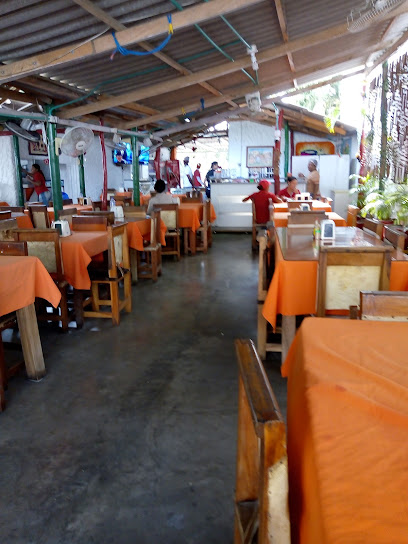
Rancho Del Sol
Experience authentic Caribbean dining at Rancho Del Sol in Riohacha - where vibrant flavors meet warm hospitality.
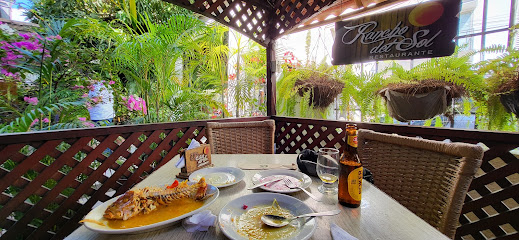
Restaurante Carbón Guajiro
Experience the vibrant tastes of Colombia at Restaurante Carbón Guajiro – where every bite tells a story.
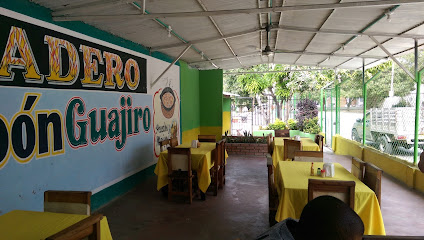
LIMA corazón contento
Experience authentic Colombian flavors at LIMA corazón contento in Riohacha - where every dish tells a story.
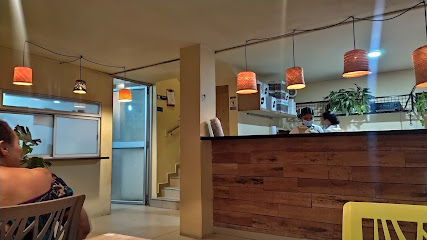
Sazon Internacional
Experience authentic Colombian cuisine at Sazon Internacional in Riohacha – a culinary journey through La Guajira's rich flavors.
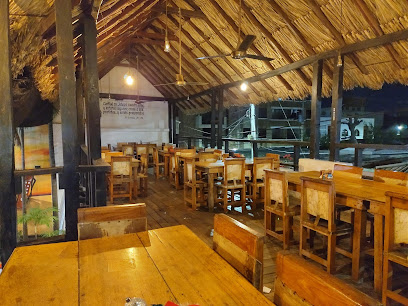
Al Arz Delicias Arabes
Discover authentic Lebanese cuisine at Al Arz Delicias Arabes in Riohacha – where every dish tells a story.
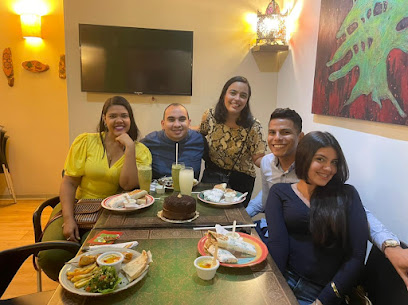
Restaurante La Tinaja
Discover Restaurante La Tinaja: A Culinary Delight Offering Seafood & Traditional Offal Pot Dishes in Vibrant Riohacha.
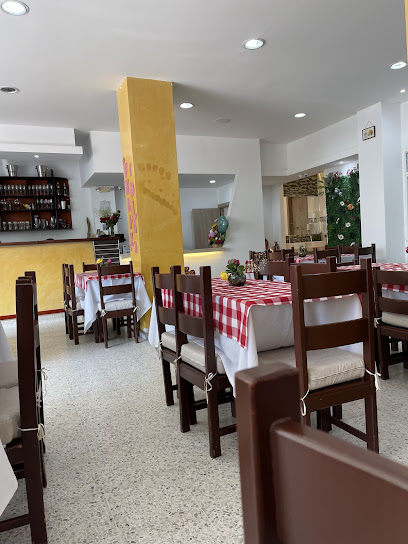
Sabor guajiro
Experience authentic Colombian cuisine at Sabor Guajiro in Riohacha, where local flavors come alive in every dish.
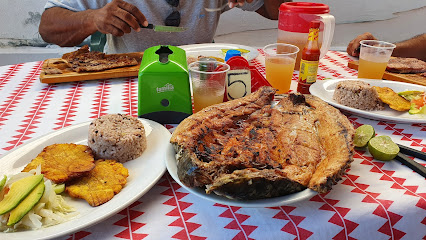
Restaurante La Parrilla
Experience authentic Colombian cuisine at Restaurante La Parrilla in Riohacha—where flavor meets tradition in a vibrant setting.
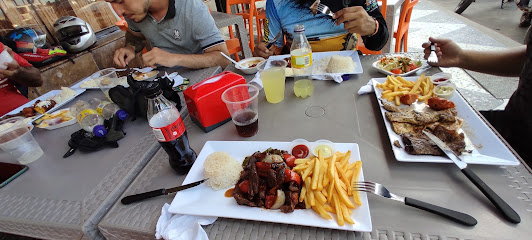
Restaurante Mantequilla
Experience authentic Colombian cuisine at Restaurante Mantequilla in Riohacha - a culinary journey through La Guajira's vibrant flavors.
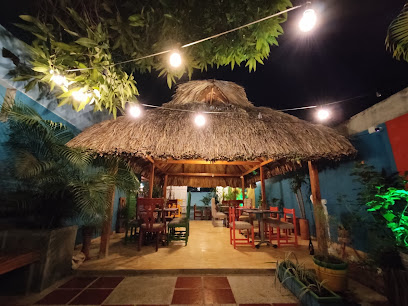
Markets, malls and hidden boutiques
Centro Comercial VIVA WAJIIRA (EXITO)
Explore the colorful world of toys at Centro Comercial VIVA WAJIIRA in Riohacha, where joy and imagination come to life through endless play.
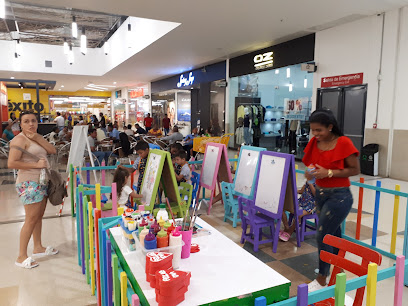
Sushiimma Mall
Experience vibrant shopping, dining, and entertainment at Sushiimma Mall in Riohacha, a must-visit destination for every traveler.
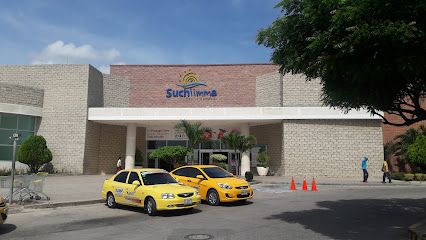
Olimpica
Discover the richness of La Guajira at Olimpica, your go-to supermarket for local flavors and everyday essentials in Riohacha.
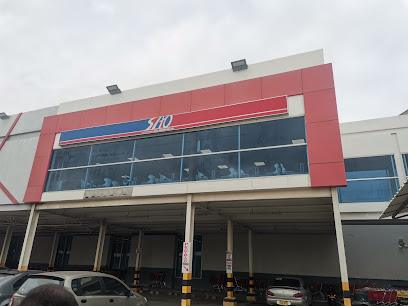
Muebles JAMAR
Discover exquisite furniture and home decor at Muebles JAMAR in Riohacha, where style meets comfort and quality.
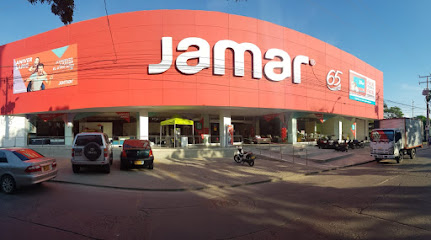
Crazy Weeknd
Discover the vibrant vaporizer culture at Crazy Weeknd in Riohacha, where quality products meet a welcoming atmosphere.
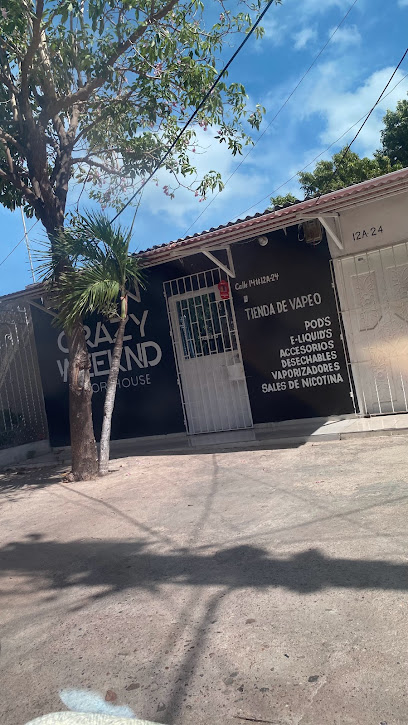
ARA CUATRO VIAS
Discover ARA CUATRO VIAS, a vibrant store in Riohacha, offering unique local crafts and a taste of La Guajira's rich culture.
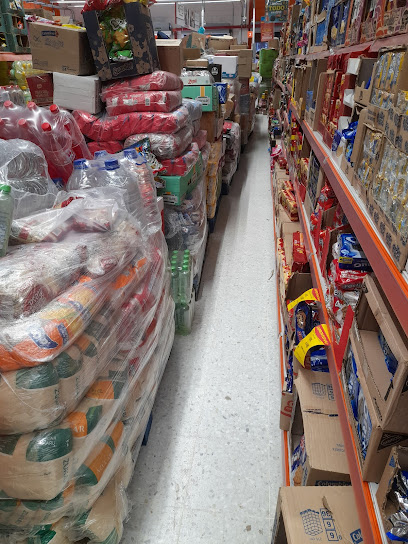
Dulce Bokado
Experience the sweet delights of Dulce Bokado, the premier ice cream destination in Riohacha, La Guajira, offering unique flavors and a cozy atmosphere.
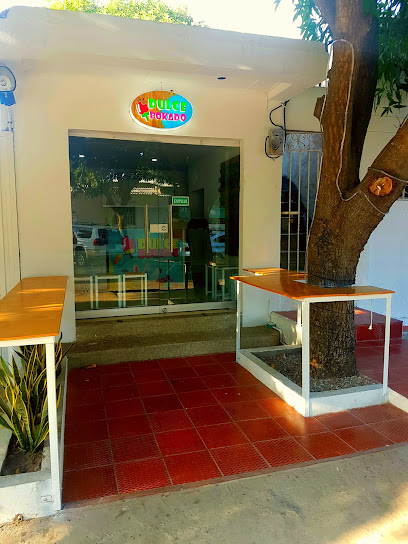
Fruver la clave2
Explore the flavors of Riohacha at Fruver la clave2, your local grocery destination for fresh produce and authentic Colombian snacks.
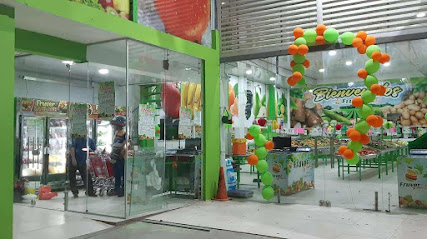
D1 calle 15
Experience the vibrant flavors of La Guajira at D1 Calle 15, Riohacha's go-to grocery store for fresh produce and local delicacies.
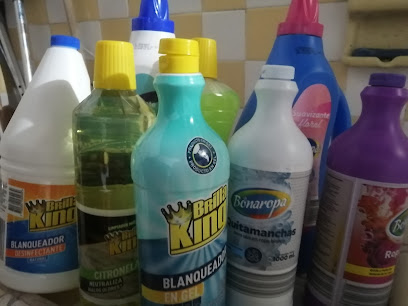
Black And White
Explore artistic expression at Black And White in Riohacha, where tattoos, barbering, and body piercings come together in a creative sanctuary.
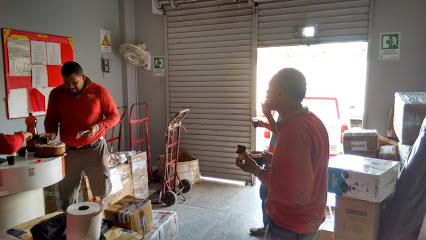
Totto Viva Wajiira
Discover the vibrant culture of La Guajira at Totto Viva Wajiira, where local crafts and authentic products await you.
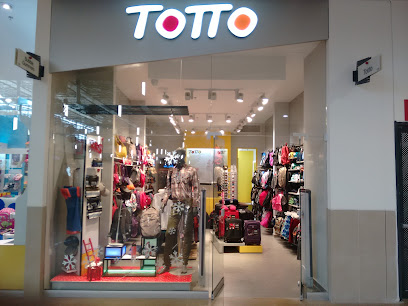
Super almacén olímpica
Explore the lively Super Almacén Olímpica in Riohacha, where shopping meets local culture and delicious dining options await.
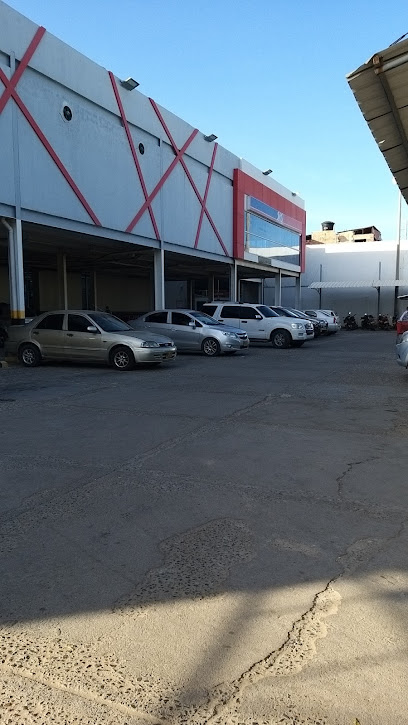
VÍA BALOTO METRO RIOHACHA 2 RIOHACHA
Experience the vibrant culture of La Guajira at Vía Baloto Metro in Riohacha, where shopping meets local tradition and community spirit.
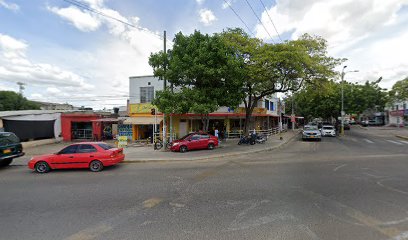
Sweet cream
Experience the essence of Colombian coffee culture at Sweet Cream, a cozy coffee shop in the heart of Riohacha, La Guajira.
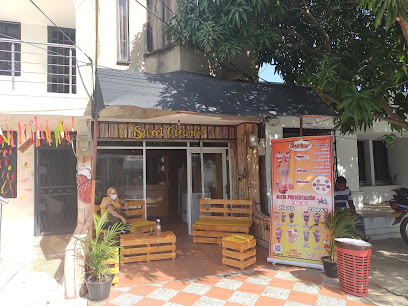
Tienda Ome
Discover the local flavors and vibrant atmosphere of Tienda Ome, your go-to grocery store in the heart of Riohacha, La Guajira.
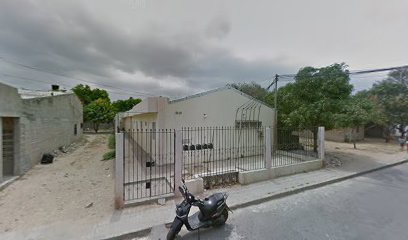
Essential bars & hidden hideouts
Malecón playa bar lounge
Discover the lively atmosphere of Malecón Playa Bar Lounge in Riohacha, where refreshing drinks and stunning ocean views create the perfect getaway.
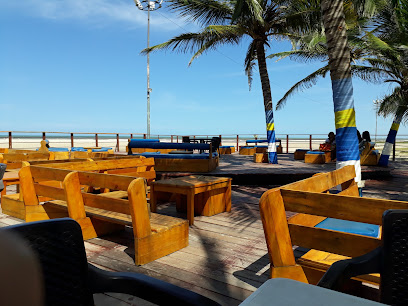
Ainhoa Tapas Bar
Experience the vibrant culinary scene of Riohacha at Ainhoa Tapas Bar, where delicious tapas and a lively atmosphere await.
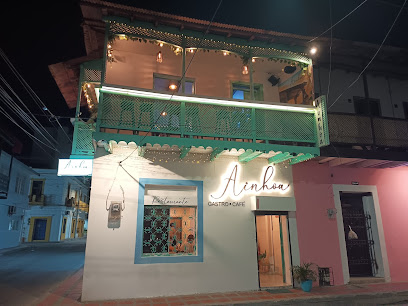
Bonanza
Experience the vibrant nightlife of Riohacha at Bonanza, a lively bar offering local drinks and a rich cultural atmosphere.
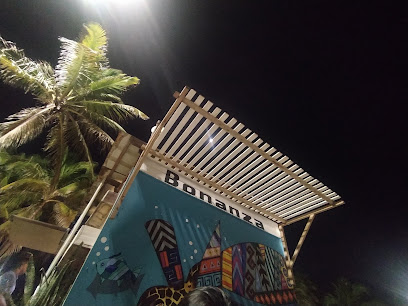
Abadia bar
Experience the vibrant nightlife of Riohacha at Abadia Bar, where refreshing drinks and lively atmosphere create unforgettable memories.
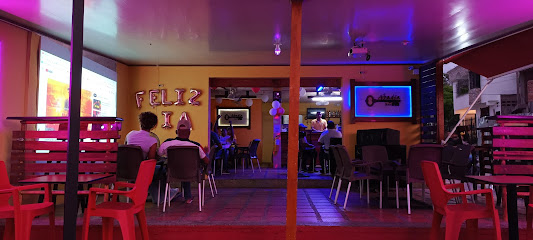
KB CAFE - BAR
Experience the vibrant ambiance and refreshing drinks at KB CAFE - BAR in Riohacha, the perfect place to unwind and socialize.
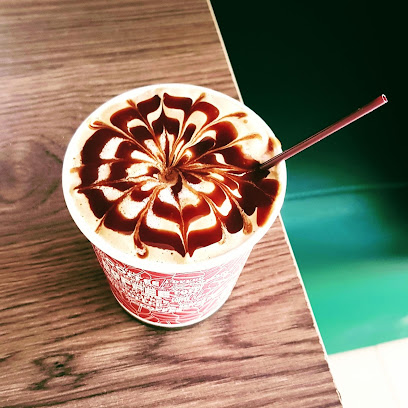
Micheladas Guiria
Discover the lively spirit of Riohacha at Micheladas Guiria, where refreshing micheladas and local flavors come together in a vibrant atmosphere.
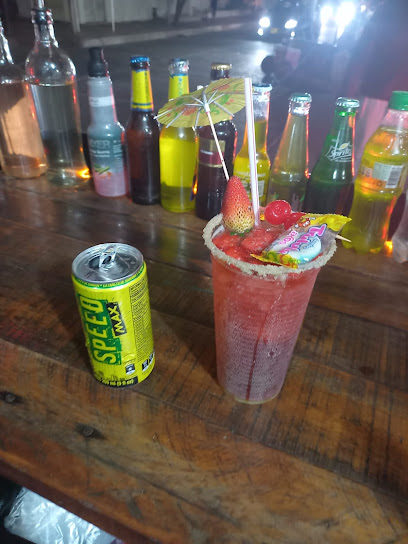
Traspatio Bar
Traspatio Bar: A lively hub in Riohacha, offering delicious drinks, local culture, and vibrant nightlife to enhance your travel experience.
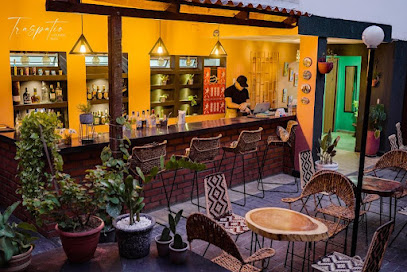
blanco y negro disco bar
Discover the lively atmosphere of Blanco y Negro Disco Bar in Riohacha, where vibrant music and refreshing drinks create an unforgettable nightlife experience.
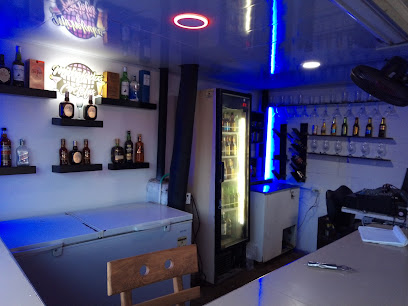
Chic Drinks
Experience the vibrant nightlife at Chic Drinks, a stylish bar in Riohacha offering delicious cocktails and a lively ambiance.
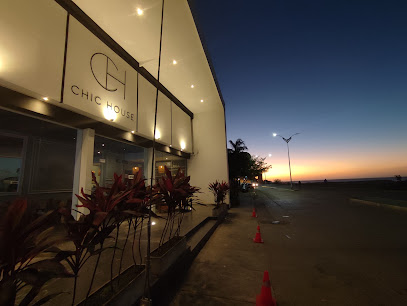
Bar gourmet mi ciudad
Experience the vibrant flavors of La Guajira at Bar Gourmet Mi Ciudad in Riohacha, where culinary innovation meets local tradition.
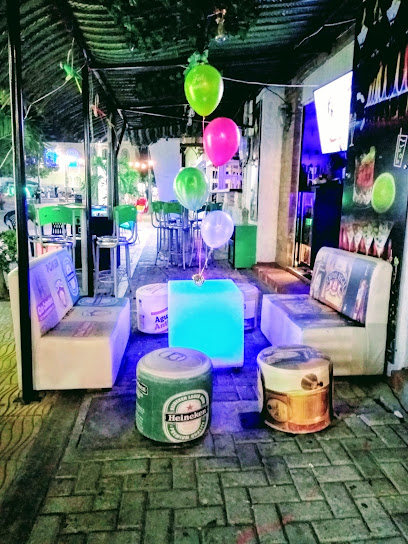
kayuco
Experience the vibrant nightlife at Kayuco, a must-visit bar in Riohacha offering unique cocktails and a welcoming atmosphere.
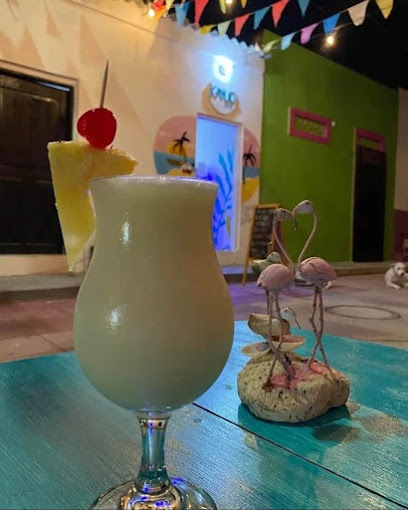
Beer House
Experience the lively ambiance and unique drink offerings at Beer House, a premier bar in Riohacha, capturing the spirit of Colombian nightlife.
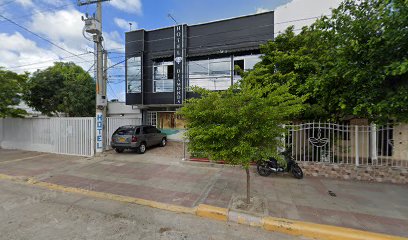
Vintage Gastrobar
Experience the rich flavors of La Guajira at Vintage Gastrobar, a top-rated gastropub in Riohacha offering a unique culinary adventure.
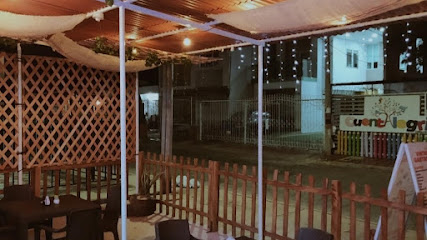
MICHELADAS BAR TRACTUS
Experience the lively ambiance of Micheladas Bar Tractus in Riohacha, where refreshing micheladas meet local culture in a vibrant setting.
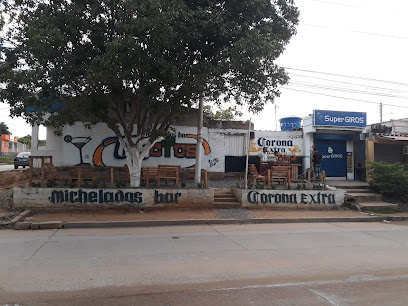
Local Phrases
-
- HelloHola
[oh-lah] - GoodbyeAdiós
[ah-dyohs] - YesSí
[see] - NoNo
[noh] - Please/You're welcomePor favor/De nada
[por fah-vohr/de nah-dah] - Thank youGracias
[grah-syahs] - Excuse me/SorryPerdón/Lo siento
[pehr-dohn/loh syehn-toh] - How are you?¿Cómo estás?
[koh-moh ehs-tahs] - Fine. And you?Bien. ¿Y tú?
[byen. ee too] - Do you speak English?¿Hablas inglés?
[ah-blahs een-glehs] - I don't understandNo entiendo
[noh ehn-tyen-doh]
- HelloHola
-
- I'd like to see the menu, pleaseMe gustaría ver el menú, por favor
[meh goos-tah-ree-ah behr ehl meh-noo, por fah-vohr] - I don't eat meatNo como carne
[noh koh-moh kahr-neh] - Cheers!¡Salud!
[sah-lood] - I would like to pay, pleaseMe gustaría pagar, por favor
[meh goos-tah-ree-ah pah-gar, por fah-vohr]
- I'd like to see the menu, pleaseMe gustaría ver el menú, por favor
-
- Help!¡Ayuda!
[ah-yoo-dah] - Go away!¡Vete!
[veh-teh] - Call the Police!¡Llama a la policía!
[yah-mah ah lah poh-lee-see-ah] - Call a doctor!¡Llama a un médico!
[yah-mah ah oon meh-dee-koh] - I'm lostEstoy perdido
[ehs-toy pehr-dee-doh] - I'm illEstoy enfermo
[ehs-toy ehn-fehr-moh]
- Help!¡Ayuda!
-
- I'd like to buy...Me gustaría comprar...
[meh goos-tah-ree-ah kohm-prahr] - I'm just lookingSolo estoy mirando
[soh-loh ehs-toy meer-ahn-doh] - How much is it?¿Cuánto cuesta?
[kwan-toh kwes-tah] - That's too expensiveEsto es demasiado caro
[ehs-toh ehs deh-mah-syah-doh kah-roh] - Can you lower the price?¿Puedes bajar el precio?
[pweh-dehs bah-hahr ehl pree-syoh]
- I'd like to buy...Me gustaría comprar...
-
- What time is it?¿Qué hora es?
[keh oh-rah ehs] - It's one o'clockEs la una
[ehs lah oo-nah] - Half past (10)Y media (10)
[ee meh-dee-ah (deez)] - MorningMañana
[mah-nyah-nah] - AfternoonTarde
[tahr-deh] - EveningNoche
[noh-cheh] - YesterdayAyer
[ah-yehr] - TodayHoy
[oy] - TomorrowMañana
[mah-nyah-nah] - 1Uno
[oo-noh] - 2Dos
[dohs] - 3Tres
[trehs] - 4Cuatro
[kwah-troh] - 5Cinco
[seen-koh] - 6Seis
[says] - 7Siete
[syeh-teh] - 8Ocho
[oh-choh] - 9Nueve
[nweh-veh] - 10Diez
[dyehs]
- What time is it?¿Qué hora es?
-
- Where's a/the...?¿Dónde está...?
[dohn-deh ehs-tah] - What's the address?¿Cuál es la dirección?
[kwal ehs lah dee-rek-syon] - Can you show me (on the map)?¿Puedes mostrarme (en el mapa)?
[pweh-dehs mohs-trar-meh (ehn ehl mah-pah)] - When's the next (bus)?¿Cuándo es el próximo (autobús)?
[kwan-doh ehs ehl proh-ksy-moh (ow-toh-boos)] - A ticket (to ....)Un boleto (a ....)
[oon boh-leh-toh (ah)]
- Where's a/the...?¿Dónde está...?
History of Riohacha
-
Riohacha was founded on August 6, 1545, by the Spanish conquistador Nikolaus Federmann. Initially named Nuestra Señora Santa María de los Remedios del Río de la Hacha, the city served as a strategic port for the Spanish colonizers due to its proximity to the Caribbean Sea.
-
During the 16th and 17th centuries, Riohacha was a frequent target for pirates and privateers. Notably, in 1569, the infamous English pirate Francis Drake attacked the city, plundering its resources and causing significant destruction.
-
Riohacha played a role in Colombia's struggle for independence from Spanish rule. The city was an important base for revolutionary leaders such as Simón Bolívar, who used it as a strategic point to launch operations against Spanish forces in the early 19th century.
-
Riohacha is the cultural heartland of the Wayuu people, an indigenous group that has inhabited the region for centuries. The Wayuu are known for their vibrant textiles, unique social structures, and rich oral traditions. Their influence is deeply embedded in the cultural fabric of the city.
-
The 20th century saw significant economic development in Riohacha, particularly through the exploitation of natural resources such as salt and pearls. The city also became an important commercial hub for the export of coffee and other agricultural products.
-
In recent decades, Riohacha has transformed into a popular tourist destination, renowned for its beautiful beaches, vibrant festivals, and cultural richness. The city hosts numerous events, such as the Festival of the Dividivi, which celebrates local traditions and attracts visitors from around the world.
Riohacha Essentials
-
The closest international airport to Riohacha is Almirante Padilla Airport (RCH), located just 10 minutes from the city center. The airport has domestic flights connecting from major cities like Bogotá and Medellín. Alternatively, you can take a long-distance bus from various Colombian cities. Buses from Bogotá to Riohacha take around 18 hours. You can also rent a car and drive; the roads are generally well-maintained, but be prepared for long distances.
-
Within Riohacha, taxis and mototaxis are the most common modes of transportation. Taxis are relatively inexpensive, but always make sure to agree on the fare before starting your journey. Mototaxis are even cheaper and can navigate through traffic more easily. Public buses and minibuses (colectivos) are also available for travel within the city and to nearby towns. Renting a bicycle is another good option for exploring the city at your own pace.
-
The official currency in Riohacha is the Colombian Peso (COP). Credit and debit cards are widely accepted in hotels, restaurants, and larger shops, but it is advisable to carry some cash, especially when visiting smaller establishments and local markets. ATMs are available throughout the city, but it's a good practice to withdraw sufficient cash in larger cities before heading to Riohacha.
-
Riohacha is generally safe for tourists, but like any travel destination, it is important to take standard precautions. Avoid walking alone at night, especially in secluded or unfamiliar areas. Keep an eye on your belongings in crowded places and be cautious of pickpockets. Areas to exercise extra caution include the outskirts of the city and some remote beaches, as these areas have higher crime rates. Always use registered taxis and avoid accepting rides from strangers.
-
In case of an emergency, dial 123 for immediate assistance. The local police station and medical facilities are available in Riohacha. It is highly recommended to have travel insurance that covers medical emergencies. For minor health issues, there are pharmacies in the city where you can purchase over-the-counter medications. The main hospital in Riohacha is Nuestra Señora de los Remedios Hospital.
-
Fashion: Do dress modestly, especially when visiting religious sites or rural areas. Avoid wearing flashy jewelry or expensive accessories. Religion: Do respect local customs and traditions. When visiting churches, dress conservatively and be quiet. Public Transport: Do be courteous and give up your seat to elderly passengers. Don’t eat or drink on public transport. Greetings: Do greet people with a handshake or a friendly 'Hola'. Eating & Drinking: Do try local delicacies such as arepas and seafood. Don’t refuse hospitality, as it is considered impolite.
-
To experience Riohacha like a local, visit the lively market at Plaza Padilla where you can buy fresh produce and artisanal crafts. Engage with locals who are usually friendly and willing to share stories about their culture and traditions. Don’t miss the chance to visit the Wayuu indigenous community and learn about their customs and crafts. For a unique experience, take a stroll along the Malecon, the seaside promenade, especially at sunset. Try to attend local festivals like the Festival de la Cultura Wayuu to immerse yourself in the local culture.
Trending Landmark in Riohacha
-
Malecón Playa
-
Plaza José Prudencio Padilla
-
Mayapo beaches
-
Muelle Turístico
-
Santuario de Fauna y Flora Los Flamencos
-
Hotel Taroa
-
I Love Riohacha.
-
Hotel Gimaura
-
Monumento A Francisco El Hombre
-
Playas De Ríohacha
-
La Jaus by La Trece
-
Monumento A Los Embarradores
-
Sumaj Feeling
-
Pichiguel cafe
-
Guajira Tours
Nearby Cities to Riohacha
-
Things To Do in Santa Marta
-
Things To Do in Barranquilla
-
Things To Do in Cartagena
-
Things To Do in Oranjestad
-
Things To Do in Palm Beach
-
Things To Do in Sero Blanco
-
Things To Do in Tanki Leendert
-
Things To Do in Noord
-
Things To Do in Paradera
-
Things To Do in Pos Chiquito
-
Things To Do in Savaneta
-
Things To Do in Santa Cruz
-
Things To Do in San Nicolas
-
Things To Do in Sincelejo
-
Things To Do in Cúcuta








